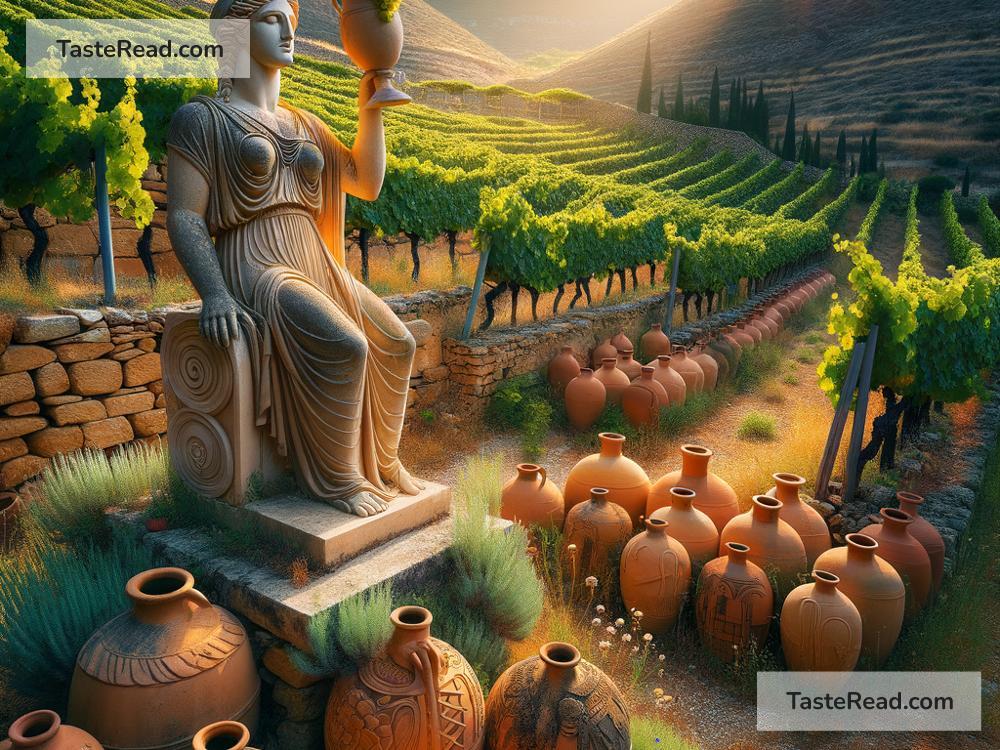How Wine Became Divine in Greek Mythology
Wine has always been more than just a drink. In many cultures, it holds symbolic meaning, celebrates joy, or marks sacred rituals. For the ancient Greeks, wine was much more than a beverage—it was a gift from the gods, a sacred symbol of life, and a connection to the divine. Greek mythology not only shaped how the Greeks saw wine but also elevated it to a spiritual and cultural cornerstone. Let’s explore how wine became divine in ancient Greece and why it continues to hold special meaning today.
Dionysus: The God of Wine and Festivity
Wine is deeply tied to the story of Dionysus, one of the twelve Olympian gods in Greek mythology. Dionysus, also known as Bacchus in Roman mythology, is the god most closely associated with wine, revelry, fertility, and theater. His story is fascinating and full of divine drama, making him both a beloved and mysterious figure.
According to mythology, Dionysus was the son of Zeus, king of the gods, and Semele, a mortal princess. When Semele was tricked into seeing Zeus’s true form, she perished, but Dionysus was saved. Zeus stitched the unborn Dionysus into his thigh, allowing him to fully develop and eventually be born. This unusual birth made Dionysus half-god and half-mortal, symbolizing his connection to both the divine world and human life.
As Dionysus grew, he traveled the world and discovered the art of winemaking. He taught humans how to cultivate grapevines, ferment the juice, and create wine. Sharing this knowledge transformed Dionysus into a beloved figure among mortals. For the Greeks, wine was seen as nothing short of divine—it was Dionysus’s sacred gift that brought happiness, community, and celebration.
Wine as a Symbol of Transformation
In Greek mythology, wine often represents transformation. Dionysus himself embodies this idea. As a god who straddles two worlds—the mortal and the immortal—Dionysus reflects change and fluidity. Similarly, wine transforms grapes into a completely different drink, something both familiar and magical. This transformation mirrors human emotions, shifting from calm to joyful or even wild during a celebration.
Wine was considered a medium through which people could connect with something greater than themselves. Drinking wine during festivals dedicated to Dionysus wasn’t just about having fun; it was about entering a state of ecstasy that allowed participants to feel closer to the divine. These experiences were often seen as spiritual and liberating, breaking down societal barriers and freeing people from their everyday worries.
The Festivals of Dionysus
The ancient Greeks were serious about celebrating Dionysus. They held grand festivals in his honor, with wine taking center stage. The most famous of these events were the Dionysia, held in Athens. These festivals featured theatrical performances, music, dancing, feasting, and, of course, the drinking of wine.
The Dionysia also gave birth to the art of theater. Performers would reenact mythological stories, many of which celebrated Dionysus’s adventures. The blending of wine, art, and storytelling made the festivals deeply spiritual and culturally enriching.
Another important event was the Anthesteria, a festival celebrating the wine harvest. During this holiday, people opened new jars of wine, tasted them for the first time, and offered gratitude to Dionysus. The Anthesteria also had a mystical side—it was believed to be a time when the boundaries between the living and the dead grew thin, allowing spirits to roam. Wine became not just an earthly pleasure but also a tool to honor life’s mysteries.
Wine and Social Harmony
In Greek culture, wine played a key role in maintaining social harmony. The Greeks promoted moderation in drinking through practices like the symposium, a gathering where intellectuals and friends drank wine while discussing philosophy, poetry, and politics. Wine was diluted with water to prevent excessive intoxication, as the Greeks believed balance was essential in all things. These gatherings highlighted wine’s ability to bring people together, inspiring deep conversations and forging bonds.
The idea of moderation spoke to the Greeks’ respect for Dionysus. While the god represented joy and freedom, he also symbolized the dangers of overindulgence. Many mythological stories warned of chaos when Dionysus’s power was misused. For example, King Pentheus of Thebes resisted the worship of Dionysus and prohibited his rituals. As a result, he met a tragic end, showing the importance of respecting the balance between celebration and restraint.
The Spiritual Legacy of Wine
Wine’s divine status in Greek mythology wasn’t just about fun and indulgence. It also connected mortals to the gods and to each other. Through wine, the Greeks celebrated life, appreciated transformation, and honored the mysteries of existence.
Even today, the legacy of Dionysus can be felt in how people experience wine. Whether it’s sharing a glass with loved ones, celebrating milestones, or reflecting on life’s beauty, wine continues to symbolize joy, connection, and transformation.
So, next time you raise a glass, remember the ancient Greeks and their god of wine. With every sip, you’re taking part in a tradition that has spanned millennia—a ritual that reminds us that, sometimes, the simplest pleasures can hold the most profound meanings.


